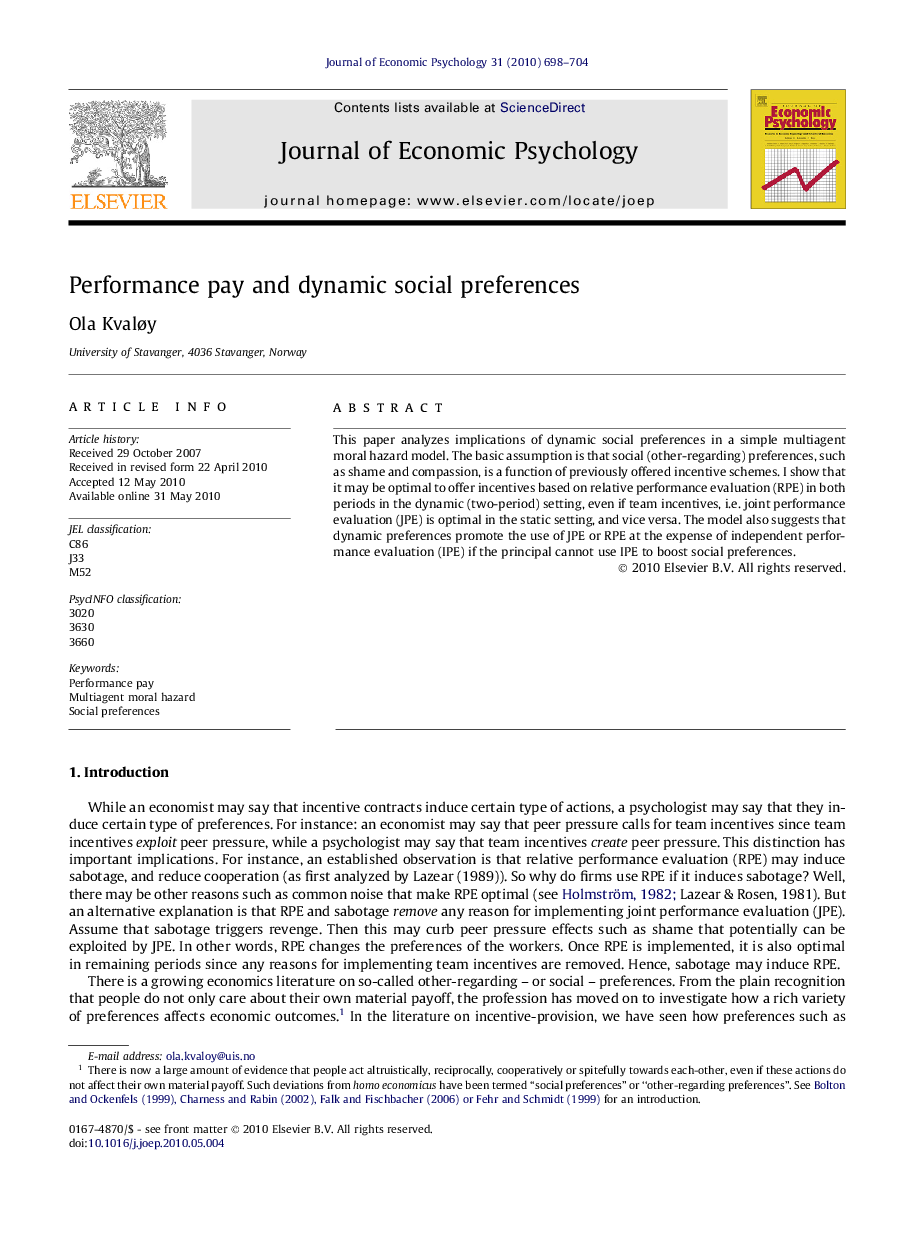| Article ID | Journal | Published Year | Pages | File Type |
|---|---|---|---|---|
| 885289 | Journal of Economic Psychology | 2010 | 7 Pages |
Abstract
This paper analyzes implications of dynamic social preferences in a simple multiagent moral hazard model. The basic assumption is that social (other-regarding) preferences, such as shame and compassion, is a function of previously offered incentive schemes. I show that it may be optimal to offer incentives based on relative performance evaluation (RPE) in both periods in the dynamic (two-period) setting, even if team incentives, i.e. joint performance evaluation (JPE) is optimal in the static setting, and vice versa. The model also suggests that dynamic preferences promote the use of JPE or RPE at the expense of independent performance evaluation (IPE) if the principal cannot use IPE to boost social preferences.
Keywords
Related Topics
Social Sciences and Humanities
Business, Management and Accounting
Marketing
Authors
Ola Kvaløy,
